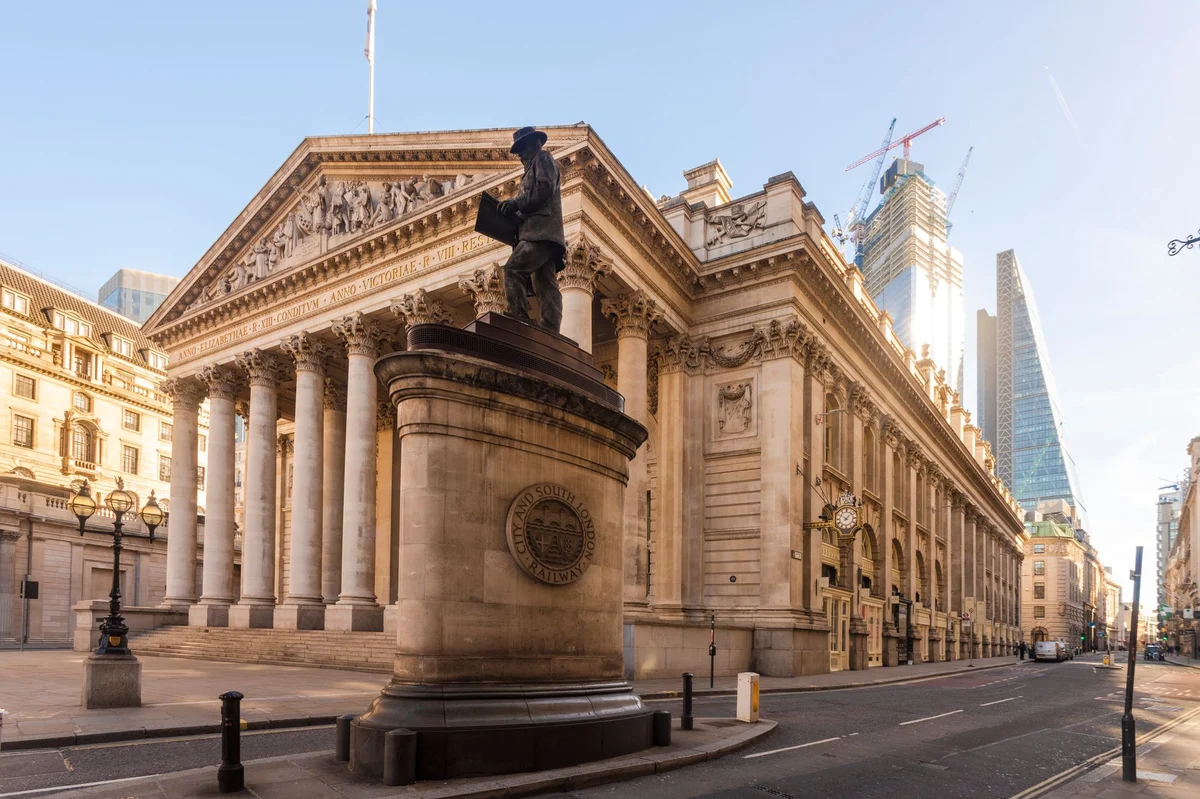By Ross Kempsell
Copyright standard

I suppose it’s fair enough that London should rank behind the cities of Spain, Turkey and Sweden at — let’s say — the quality of national cuisine. We do have world-class restaurants — and London’s high-end dining scene is only getting better — but let’s face it, the capital is unlikely to ever become globally renowned for its own native fare. With the possible exception of Sweden in winter, I’d also be perfectly relaxed if we are generally outdone by those countries in hours of sunlight, the UV index, sunglasses sales per capita and other such metrics.
But to be consistently and substantially outdone by the solidly mid-table economies of Europe in stock market flotations is frankly embarrassing. The genius of our relentless, sometimes harsh, often brilliant sprawl of glass and steel — from the City to Canary Wharf — is to generate prosperity by such means, including, but not limited to, the creation of shareholder value. Not to mention the AI start-ups populating repurposed warehouses and the latte-wielding fashionistas. The entire project is — and has really been since medieval if not Roman England — an agglomeration and distribution of wealth powered by a globally dominant concentration of talent, technology and reliable law and trade. So what went wrong?
This has been the worst year in London for corporate listings for more than three decades, although fortunately this week’s dual Nasdaq and London IPO of Fermi America, a Texas-based developer of private powergrids for AI data centres, will make the fourth quarter figures look a lot healthier. Nevertheless, there is a horrifically weak figure for fundraising up to September: just £184 million. In 2021, London was raising capital in the order of £17 billion. London sank to 23rd in Bloomberg’s global IPO rankings this week. No offence to Mexico or Oman, but it is astonishing that those destinations are ahead of the UK for listings. I’d expect the US to be outdoing us — this year American IPOs stand at £40bn — but why is London lagging behind demonstrably much smaller and less dynamic economies?
Some of this down to a general European malaise. It’s true that out of all European economies, only Sweden has managed to chalk up more than £1bn in IPOs so far this year. At this point a slew of conventional arguments are often invoked to explain the UK’s laggardly performance — by both Labour and Conservative governments. They point to the war in Ukraine, a general climate of European under-confidence and instability, the long tail of Covid — and many will seek to invoke Brexit (though this doesn’t account for the fact that the post-Brexit 2021 boom in London listings was the hottest for a decade).
I don’t think these excuses really hold though, and they are often used to avoid brutal honesty about our current predicament. It’s not just the dearth of flotations at issue, it’s also the massive problem of high-profile de-listings which further damage confidence. Take for example successful companies like Wise — one of the biggest fintechs in the country, listed here since 2021 — which is moving to the US, along with many others. We need to look at the specifics, rather than the macro picture.
Ask anyone involved in an IPO and probably the first thing they mention is the FCA and the regulatory infrastructure. As the Hill Review, commissioned by Rishi Sunak as chancellor, reported: “It makes no sense to have a theoretically perfect listing regime if in practice users increasingly choose other venues.” London has been and will always be a regulatory beacon. But the bureaucracy, timelines and obstacles in the listing process simply make other destinations more attractive.
Then there is a huge problem with fiscal policy under Rachel Reeves, which tends to disproportionately clobber wealth creators. Independent schools are closing at an alarming rate after VAT was whacked on fees. The tax environment is making London a less attractive place for entrepreneurs and their families. Capital gains tax is up from 10 per cent to 18 per cent. That’s not to mention the rise in employers’ National Insurance Contributions which blasts every business, big or small.
But there’s a final factor I want to raise that will not be welcome among my colleagues in the media: I really blame London’s IPO drought on a relentlessly negative news and cultural climate. Like democratic politics, public markets rely on scrutiny and transparency to build trust. It is absolutely right and inevitable that firms listing in London should be subject to media attention and even interrogation. But many executives now feel that listing in London — in the context of a political and media climate dominated by a Labour government in Westminster and in City Hall, and an often business-hostile media — has become a significant turn off.
It simply isn’t worth the hassle. Companies come to London and find themselves and their executives trashed in the media before they have even traded a day on the LSE — especially, for instance, tech companies. I’m afraid the media environment is very different in the US — which nevertheless has a high level of corporate scrutiny and a vibrant business press — with a fundamentally more positive attitude towards wealth creation. That is what we need in London for IPOs to recover, with all the positive benefits that will bring to every Londoner.



